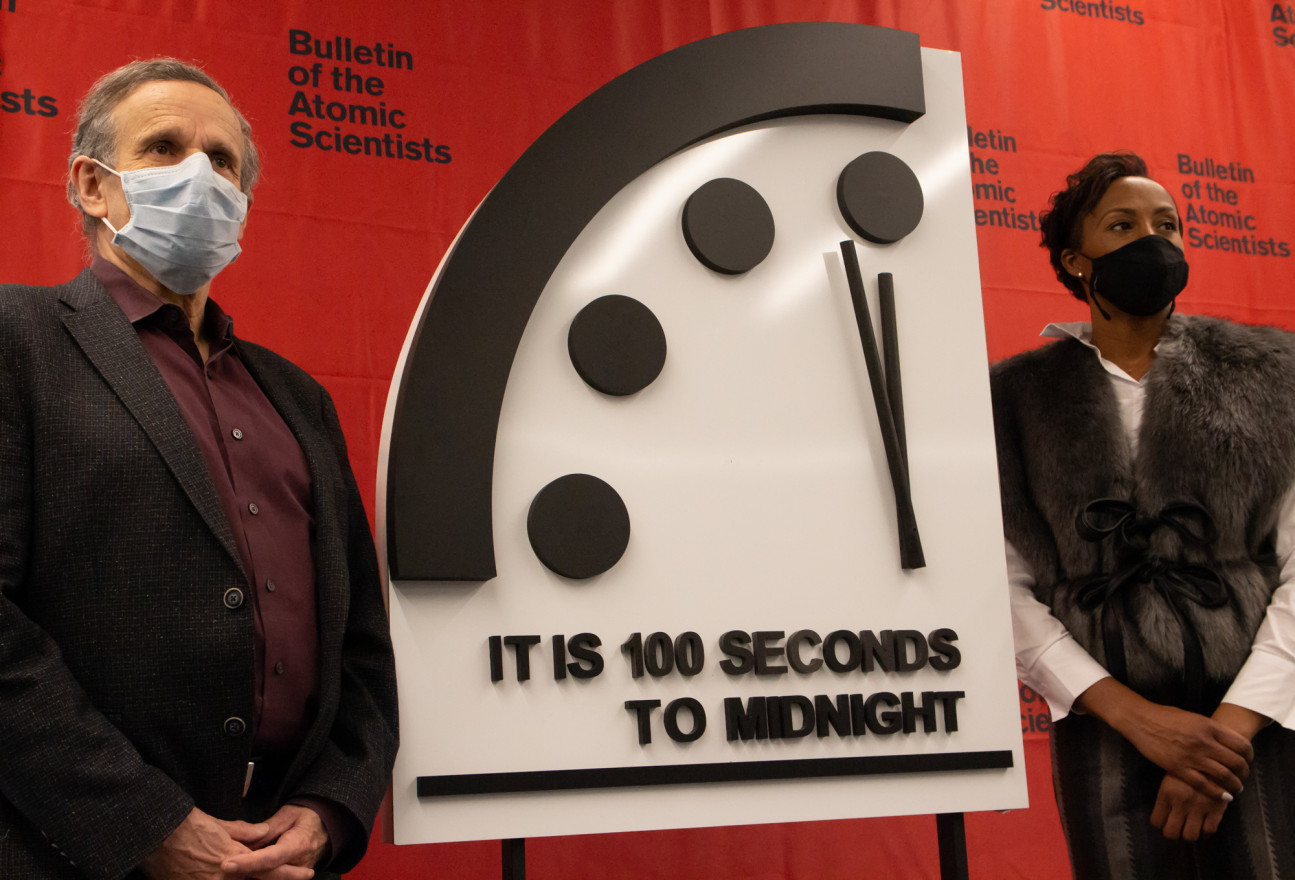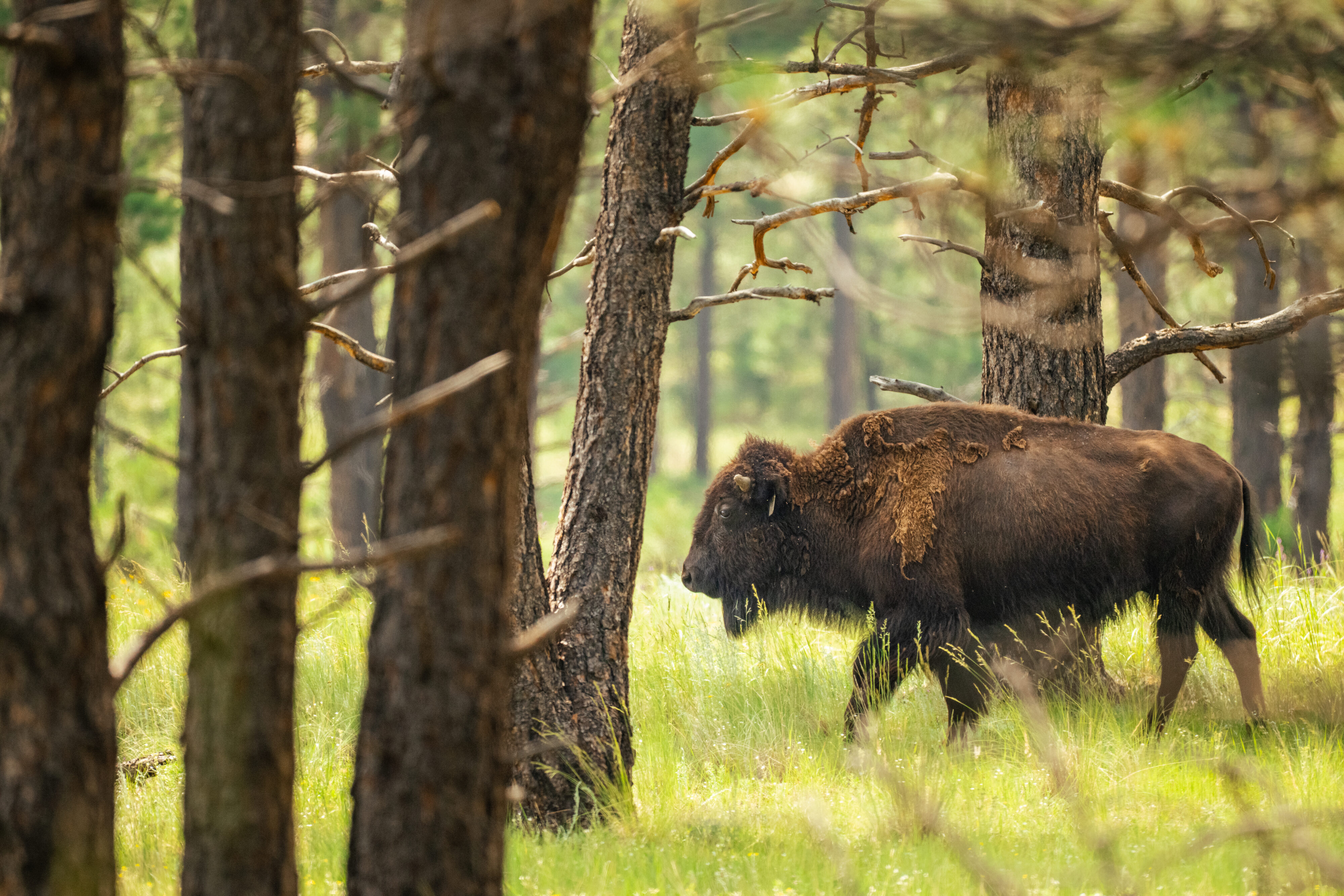By Carlyn Kranking
On the heels of a year plagued by a pandemic, tied for the top spot as the hottest on record and pushed to the limits of science denial and misinformation, scientists caution the world is poised at a decisive moment.
Act now, before it’s too late, they warn.
In late January, the Bulletin of the Atomic Scientists announced the 2021 time for its historic Doomsday Clock, which counts down to a “midnight” apocalypse. Beginning last year, the clock displayed the time in seconds, rather than in minutes.
When the Bulletin unveiled this year’s clock time at a news conference on Zoom, the hands remained at 100 seconds to midnight, just as they were at the start of 2020. This is the closest the hands have ever been to this symbolic Armageddon.
“The Doomsday Clock continues to hover dangerously, reminding us about how much work is needed to push the hands of the clock away from midnight,” said Rachel Bronson, president and CEO of the Bulletin, at Wednesday’s virtual news conference.
Scientists founded the Bulletin in Chicago after the bombings of Hiroshima and Nagasaki in Japan in 1945 to highlight the threat of nuclear weapons. The Doomsday Clock, which began two years later, is a warning — but it also presents an opportunity to change. The world is at a moment in history where the “danger is high, and the margin for error is low,” Bronson said.
The Bulletin has warned in recent years of the threats of climate change and online misinformation, encouraging citizens to insist on facts in the face of lies from world leaders.
But “in 2020, online lying literally killed,” according to the Bulletin’s 2021 statement. COVID-19 has killed more than 2 million people as a mass of — sometimes contradictory — online content created what the World Health Organization called an infodemic.
“The pandemic serves as a historic wake-up call, a vivid illustration that national governments and international organizations are unprepared to manage complex and dangerous challenges like those of nuclear weapons and climate change, which currently pose existential threats to humanity,” Bronson said at the conference. Those two risks are the key influencers of the hands of the Doomsday Clock.
So, after a year of worldwide strife, as climate change fueled massive fires, a pandemic ravaged world populations and nuclear war persisted as a real threat, why hasn’t the clock moved closer to midnight? Turns out, there were a couple of important bright spots in 2020.
For one, renewable energy has proven to be resilient through the pandemic.
“Once installed, renewable sources have nearly no operating source costs,” said Susan Solomon, professor of environmental studies at the Massachusetts Institute of Technology and member of the Bulletin Science and Security Board, during the news conference. “And that shows how useful they can be in turbulent times like this.”
Further, reports show that renewable energy sources may soon outpace coal use in the United States.
In the realm of nuclear weapons, the U.S. and Russia intend to pursue a five-year extension of the New Strategic Arms Reduction Treaty, which caps each country’s deployed nuclear weapons at 1,550 each. And there are indications that President Joe Biden might commit to not using nuclear weapons first.
“As vice president, Biden said there was no scenario in which the first use of nuclear weapons by the United States would make sense,” said Steve Fetter, professor of public policy at the University of Maryland and also a member of the science and security board, at the news conference. “And his campaign stated that the sole purpose of the U.S. nuclear arsenal should be to deter nuclear attack. We hope President Biden will take this important step.”
The Doomsday Clock is a tradition that goes back nearly 75 years. The Bulletin of the Atomic Scientists first printed the Doomsday Clock on its magazine cover in 1947. Then, it was seven minutes to midnight. In 2007, the Bulletin included climate change in its calculations for the first time. Since 2010, the hands of the clock have been inching closer to doomsday.
“I hope that we do more than just look at the clock and issue a few media reports and get on with our day,” said Asha George, executive director of the Bipartisan Commission on Biodefense and member of the Bulletin Science and Security Board, at the news conference. “I hope that we take this information and we act to bring those hands back farther and farther to make the world a safer place.”
At the virtual conference, former California Gov. and Bulletin Executive Chair Jerry Brown urged individuals to keep the pressure on world leaders and representatives in government.
“It’s time to eliminate nuclear weapons, not build more of them,” Brown said. “Likewise, with climate change: The U.S., China and the other big countries must get serious about cutting lethal carbon emissions — now, not tomorrow. It’s 100 seconds to midnight. Wake up.”
How do you move the planet forward?
Submit Story
























